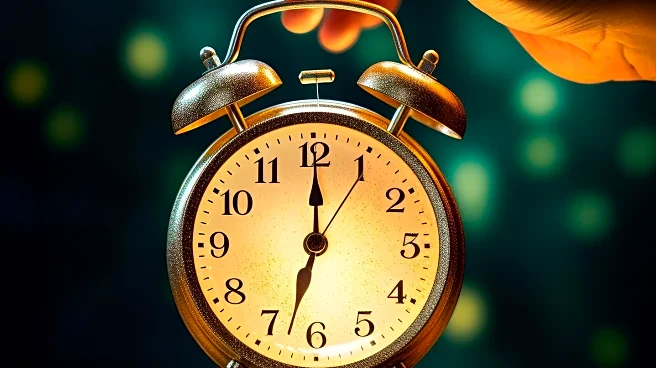What's Happening?
As Israel transitions to standard time, health professionals emphasize the biological impact of the time shift on sleep patterns. The change, which involves setting clocks back one hour, can disrupt the body's
circadian rhythm, leading to mood disturbances, fatigue, and lower functioning. Experts suggest that the body's internal clock, which operates on a roughly 24-hour cycle, struggles to align with the external time shift, causing symptoms similar to jet lag. Traditional Chinese medicine views this period as a transition into the 'metal' phase, encouraging individuals to turn inward and strengthen their immune systems. Recommendations to ease the transition include morning light exposure, conscious breathing, a warming diet, earlier sleep, and nightly rituals.
Why It's Important?
The shift to standard time has broader implications for public health, as it affects sleep quality and overall well-being. Disrupted sleep patterns can lead to decreased productivity and increased health risks, highlighting the importance of managing the transition effectively. By adopting recommended practices, individuals can mitigate negative effects and maintain balance during seasonal changes. This approach not only supports physical health but also promotes emotional stability, which is crucial during periods of environmental adjustment.
What's Next?
As individuals adapt to the time change, health professionals may continue to monitor its impact on sleep and overall health. Public awareness campaigns could be launched to educate people on effective strategies for managing time shifts. Additionally, further research may be conducted to explore the long-term effects of time changes on health and productivity, potentially influencing policy decisions regarding daylight saving practices.
Beyond the Headlines
The time change serves as a reminder of the body's sensitivity to environmental cues and the importance of aligning lifestyle habits with natural cycles. It underscores the interconnectedness of modern science and traditional medicine in promoting holistic health practices. This event may also spark discussions on the ethical considerations of time manipulation and its impact on human health.










